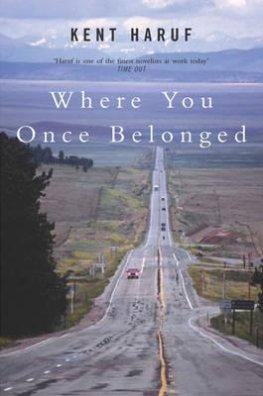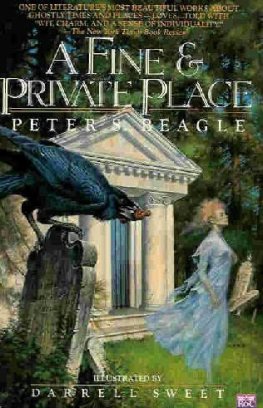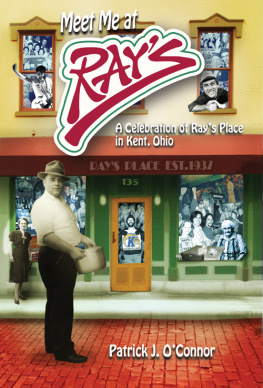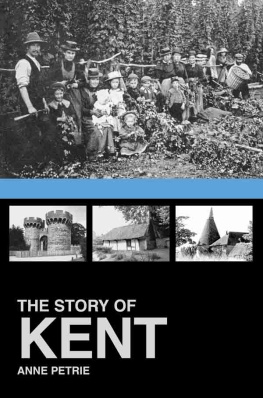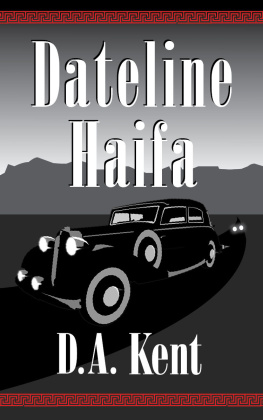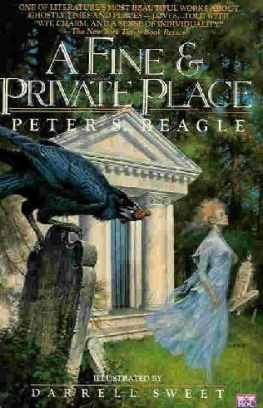Christobel Kent - A fine and private place
Here you can read online Christobel Kent - A fine and private place full text of the book (entire story) in english for free. Download pdf and epub, get meaning, cover and reviews about this ebook. year: 2011, publisher: Macmillan, genre: Detective and thriller. Description of the work, (preface) as well as reviews are available. Best literature library LitArk.com created for fans of good reading and offers a wide selection of genres:
Romance novel
Science fiction
Adventure
Detective
Science
History
Home and family
Prose
Art
Politics
Computer
Non-fiction
Religion
Business
Children
Humor
Choose a favorite category and find really read worthwhile books. Enjoy immersion in the world of imagination, feel the emotions of the characters or learn something new for yourself, make an fascinating discovery.

- Book:A fine and private place
- Author:
- Publisher:Macmillan
- Genre:
- Year:2011
- ISBN:9781429970808
- Rating:3 / 5
- Favourites:Add to favourites
- Your mark:
- 60
- 1
- 2
- 3
- 4
- 5
A fine and private place: summary, description and annotation
We offer to read an annotation, description, summary or preface (depends on what the author of the book "A fine and private place" wrote himself). If you haven't found the necessary information about the book — write in the comments, we will try to find it.
A fine and private place — read online for free the complete book (whole text) full work
Below is the text of the book, divided by pages. System saving the place of the last page read, allows you to conveniently read the book "A fine and private place" online for free, without having to search again every time where you left off. Put a bookmark, and you can go to the page where you finished reading at any time.
Font size:
Interval:
Bookmark:
Christobel Kent
A fine and private place
Chapter One
At the wheel of his dark and silent car half an hour before a February dawn, Sandro Cellini sat up a side street in a southern suburb of Florence, thinking about his wife. Luisa.
He should have been thinking about the job, but then not wanting to think about the job was part of the problem.
For three days Sandro Cellini had been paid to follow a seventeen-year-old girl to her upmarket school in the city, and then home again. Her parents thought she had got into drugs, and they wanted to know who was leading her astray. Carlotta Bellagamba was an only child a precious child, as the euphemism went; conceived through medical intervention.
So far: nothing. Friday night was often, according to her parents, the night Carlotta stayed out till the early hours, and today was indeed Friday, but Sandro had no great hopes. Not in life, nor of making any significant discovery that would help Carlotta and her parents understand one another better.
It was the modern world: parents so busy or so nervous they paid a private detective to watch their kid, rather than tackle their own flesh and blood head-on. Children too precious to be allowed a wild moment or two, but that wasnt Sandros decision to make; he was justthe hired hand. As Sandros part-time assistant Giuli Sarto had put it succinctly, what else was the precious child to do but go off the rails? An open and shut case.
Children. Having none of his own, Sandro was all too well aware he was not in a position to judge. What kind of a parent would he have made, anyway? Taciturn, like his own father, anguished, like his mother, worn down with work and worry? He couldnt really even begin to think about how much they would have loved a child, he and Luisa. The fine detail of it: the first day at school, seeing a child learn to ride a bicycle or play football. Rebellious teenagers, thinking they know it all, a girl like Carlotta making a face at her stupid old dad.
The girls home was up a leafy side-turning; a handsome two-storey villa three if you counted the garage and cellar beneath the raised ground floor. It was perhaps twenty years old, with a terrace, a verandah, five olive trees in the front garden, a fronded palm to the rear and two shiny cars in a garage. The job was not a complicated one; it was nursemaiding, pure and simple. The problem was that Sandro didnt want to be a nursemaid. For thirty years a police officer, with all the dirt and boredom that entailed, at least hed been a man.
Its bound to start slowly, his ex-partner Pietro had warned, the man with whom hed shared a squad car for fifteen years. The life of the private investigator would be like that of any other freelance; hed just have to adjust.
Only it hadnt started slowly, not at all. More than a year before, his first case had flung him in at the deep end with the search for a wayward English girl whose parents didnt seem even to give much of a damn that she might be dead, and a grieving wife pleading with him to make sense of the suicide of her husband. Flailing about in the worst weather the city had seen in forty years, Sandro had found himself fighting from the outset with his old colleagues in the Polizia di Stato, with the disbelieving arrogance of the rival force, the Carabinieri, with the expectations of the bereaved and, most of all, with himself. With his own new status: private investigator. Lowest of the low, without a badge or comrades, doffing his cap to people he despised, holding his tongue when he wanted to shout the place down.
It wasnt as if there was anyone else he could blame for his dismissal from the Polizia. Some might have called it no more than an indiscretion, a misdemeanour, even a good deed, passing information to a murder victims father. But hed broken the rules. Other men might have fought it, clung on to their job for the pension and a warm office in which to sit out the last five years of their working life. Not Sandro.
He had found the English girl, alive, just about. Hed nailed her abductor. Hed unpicked the terrible truth behind the architect Claudio Gentileschi walking into the river and leaving his wife to go on alone, and hed gone to his doubters and hed proved to them that he knew what he was doing. Proving it to himself was still a way off.
And then it had all gone quiet. The floodwaters had receded, winter set in. Christmas came and went and Sandro sat in his quiet office in San Frediano, watching the thin sunlight move from one side of the room to the next and wondering if the phone would ever ring again.
In January, after a month of twiddling his thumbs, hed forced himself to sign up for a computer course; the rudiments. How to retrieve data, how to tell if a machine has been wiped. It had taught him how little he knew, mostly.
There had been two weeks work in March, following an elderly bakers young Chilean wife to find out if she was having an affair or not. Not, as it turned out, though she did have a daughter she was keeping secret from him. Shed thought the baker wouldnt marry her if she had a child. Would it all end well? Sandro had no way of knowing; stepfathers, in his professional experience, were not reliably kind to their charges. But that was not his business, once the case was closed.
In April, some protection work for the owner of a small chain of garages in the suburbs, a month of accompanying the man a crude, arrogant piece of work around the city collecting earnings, while his regular guard was recuperating from a gunshot wound. Sandro hadnt told Luisa about the gunshot wound.
In June, after a month of twitchy idleness in the crowded city, an Italian-American Trust running a castle in the Maremma had been put on to him by some ancient contact in the British Council. The Trust an artistic community of some kind had asked him to do a decidedlypointless bit of background checking on an employee; practically a handout. Was this, he wanted to ask Pietro, as they sat shoulder to shoulder in the friendly, workmanlike bustle of the bar theyd used to go to as working police officers, Pietros blue cap between them on the table, was this how it was going to be? Fag-ends and vanity work, waiting for those scraps to fall from the rich mans table?
As the engine ticked down in the dark, frosty air, the interior of the car grew cold; Sandro opened the flask he had filled with hot tea. On the top floor of the Bellagamba house a light came on behind the frosted glass of a bathroom window: someone was up.
Another light went on downstairs. Did the mother get up first? Did she pad into the warm kitchen in her dressing-gown to make her husband some coffee? And all over again Sandro was not thinking about the job but about Luisa. His wife, with whom he had not shared breakfast for more than a month. What with one thing and another.
When theyd said goodbye outside the bar, Pietro had taken hold of his shoulders in a quick, fierce hug: not like him at all.
Hed said, Its good if you find youve got time on your hands, Sandro. Luisa needs you now.
Luisa had needed him, when she got ill. Now he wasnt so sure.
People had rallied round. If youd asked Sandro before Luisa got her diagnosis, hed have said they had a handful of friends, no more. But when word got around Luisa had been in hospital, men, women and children would be stopping him in the street to ask if they were OK, if they needed anything. Even the taciturn newspaper seller was searching out freebies for them from the back of his kiosk; restaurant guides, maps of Sicily, dog-eared postcards. Luisa had got tired of it quite quickly; shed just wanted to get back to work, and anything that smelled of charity made her irritable.
After the operation in November fifteen months earlier, Luisa had taken a month off, December, for the chemo, and though theyd continued the course through January and February, by then shed had enough of sitting at home twiddling her thumbs. She only took the Friday and Saturday off each week: Friday to have the drugs, Saturday to lie down in a darkened room while he fed her dry biscuits andcamomile tea because just lifting her head off the pillow made her throw up. And Sunday to snap at Sandro all morning, although by the evening shed have softened and become tearful; he wasnt sure which was more difficult to handle.
Font size:
Interval:
Bookmark:
Similar books «A fine and private place»
Look at similar books to A fine and private place. We have selected literature similar in name and meaning in the hope of providing readers with more options to find new, interesting, not yet read works.
Discussion, reviews of the book A fine and private place and just readers' own opinions. Leave your comments, write what you think about the work, its meaning or the main characters. Specify what exactly you liked and what you didn't like, and why you think so.

